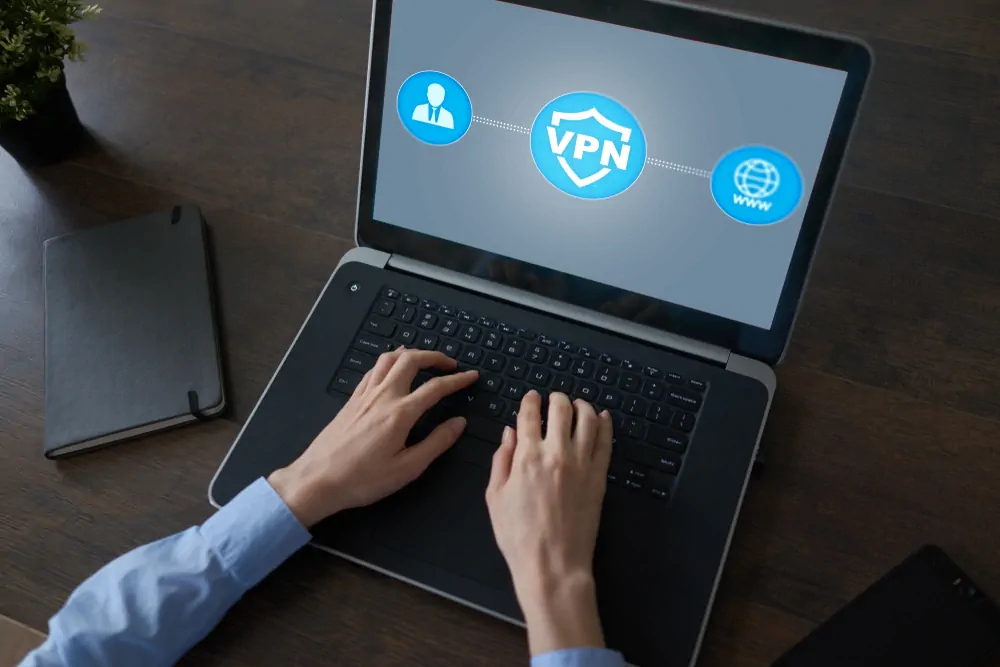We live in a society that’s connected almost 24 hours a day, but are we safe from the dangers of internet connections?
Technology, such as VPNs (virtual private networks), has enabled many people to experience a degree of privacy and security that are not available to the average user. In this article, we take a more in-depth look at how this technology works and how we can maximize it for use in daily life (for more information about how to protect your privacy in the digital age, visit privacyjournal.net).
What is a Virtual Private Network?
A VPN is a virtual private network, which is a network that is managed by a third-party. It’s a system where a consumer can route their traffic to where it is encrypted and masked.
VPNs are all the rage because of their ease of use and their many benefits. Although VPNs can significantly increase your privacy and security, this software can’t guarantee absolute safety online. One would still have to employ additional methods and layers of protection to maximize the effect of a VPN.
Check out this review for an example of a reliable and fast VPN service that can effectively turn any connection private.
A VPN Masks Your Geographical Location
A VPN is useful when websites have geographical limitations in your area. Say, you’re in a country where the government restricts access to particular websites that you want to visit—such as the case of popular social networking sites like Facebook or YouTube in China.
Here are examples of ways a VPN can be useful:
- You can easily use a VPN to mask the inbound and outbound traffic of your connection. Your VPN will hide your traffic and make it appear that you are just connecting to another server when that server connects to the social network.
- You can also use a VPN if you want to access media that is geo-restricted. Let’s say you want to access European content from outside the region; you can use your VPN to route a request you’re making with a European server. This will make it appear that you’re on a European connection while accessing the content, even though you might be in a different continent.
There are VPNs that provide servers in multiple countries. These servers allow you to make it seem like your traffic is coming from these places. If you’re looking for a VPN service, you should take a look at companies that offer multiple servers.
Simply put, a VPN allows you to mask your internet traffic by encrypting it and routing it along with other people’s traffic through a private network. This technology is useful for people who don’t want snoops tracking their traffic, or for others who wish to access resources that are not available in their country.
It Increases Your Security
The main role of a VPN is to protect your traffic against people who want to access and exploit it for your detriment. There are a couple of features to look at when studying VPNs.
Security Against MITMs
Most virtual private networks will encrypt your traffic as it travels through their servers, and since it is bundled along with other people’s traffic, it will be harder for snoops to identify what you are doing online.
Using a VPN can also be a sufficient way to prevent man-in-the-middle (MITM) attacks. The encryption that VPN network providers use is difficult to penetrate unless the attacker knows exactly what they are doing.
No Log VPNs
You should opt for a VPN service that does not log your usage of their systems. This will make sure that there won’t be any trace of your activities online in any of their servers.
The problem with logging is the threat of your traffic information being made available to people who have access to it, which is not something you want.
VPN Killswitches
There are VPNs with killswitches that automatically cease all connections just in case there is an error. This makes sure that no information is leaked in transit, should there be an error with a VPN server connection. This a significant layer of security to have.
Router-based VPNs
VPNs can work by attaching themselves to your router or your device—protecting all the data that you are transmitting. Many VPN providers have applications for use in different mobile and smart devices.
This extends the level of protection that you have on multiple devices. Instead of installing a VPN for each device, you can just place your entire network under the protection of one VPN.
The Problem With VPNs
The thing with VPNs is that they don’t guarantee absolute security in what you do online, because it won’t offer you protection against cyberattacks launched via phishing. Moreover, a VPN won’t be able to help with a physically compromised system. The software also does not protect your device against computer viruses that you might accidentally download.
However, when a VPN is used in conjunction with other cyber methods of protection, it offers a robust system of defense against threats from the internet.
Conclusion
A VPN is not a guarantee that all of your activities will remain anonymous, but what’s great about the software is that it provides a critical layer of protection, especially for people who are being harassed, threatened, or feel that their privacy is in danger. Commercial institutions that transfer large amounts of data on the cloud can also benefit from VPNs
Regardless of the threat, it is essential that you do your best to protect yourself online.








